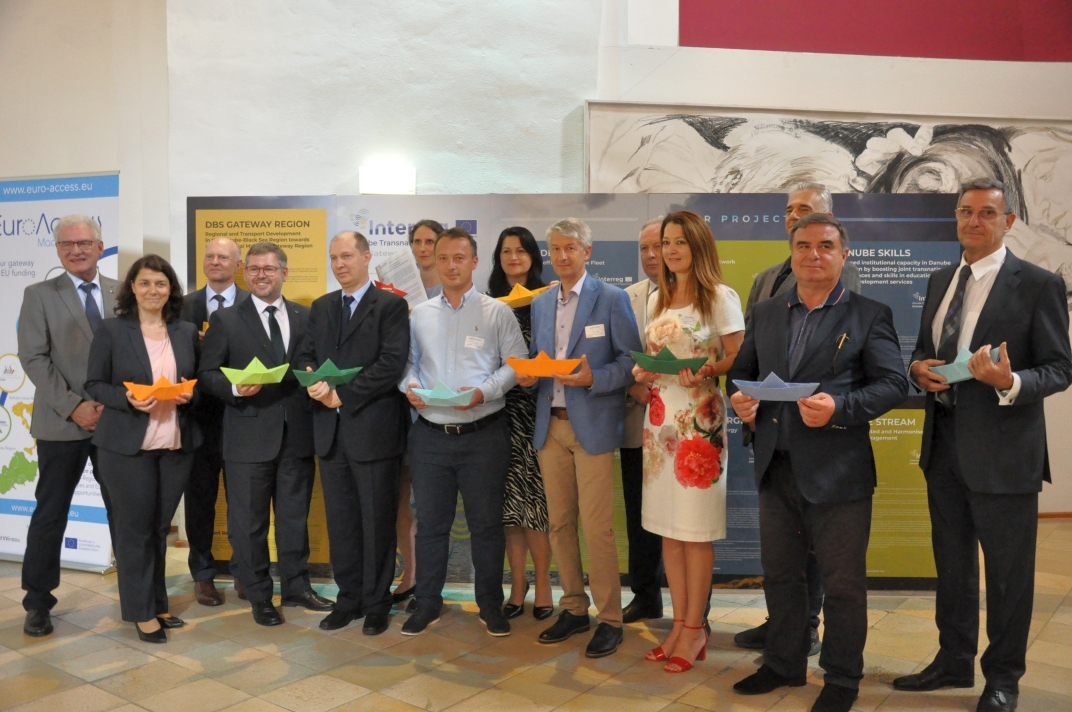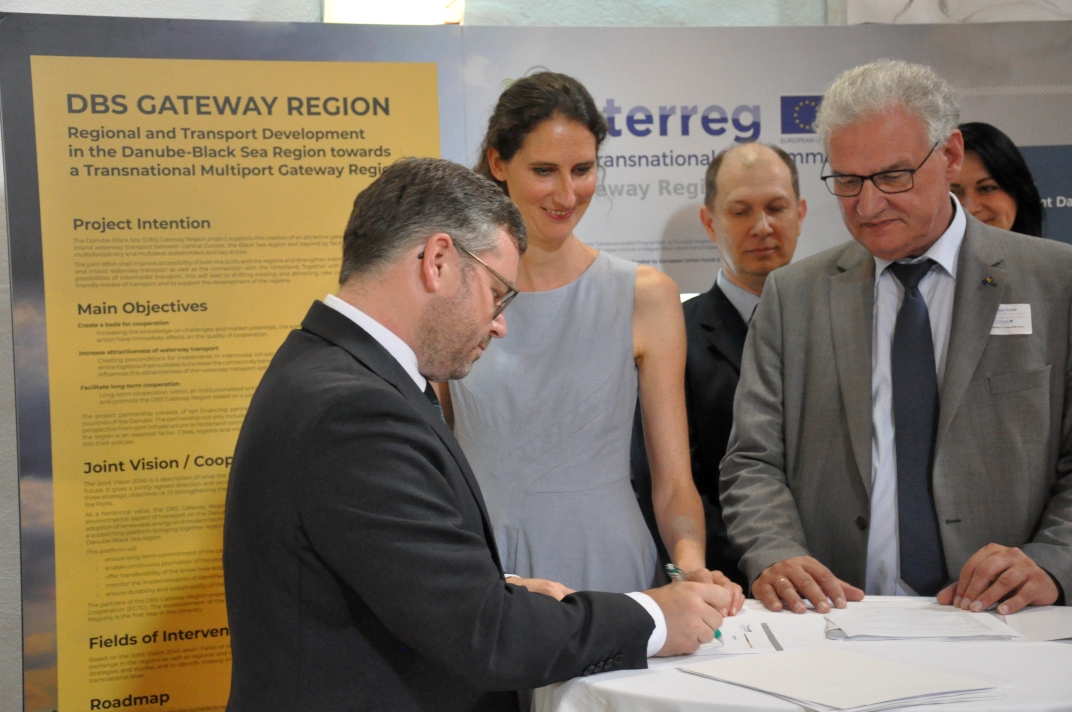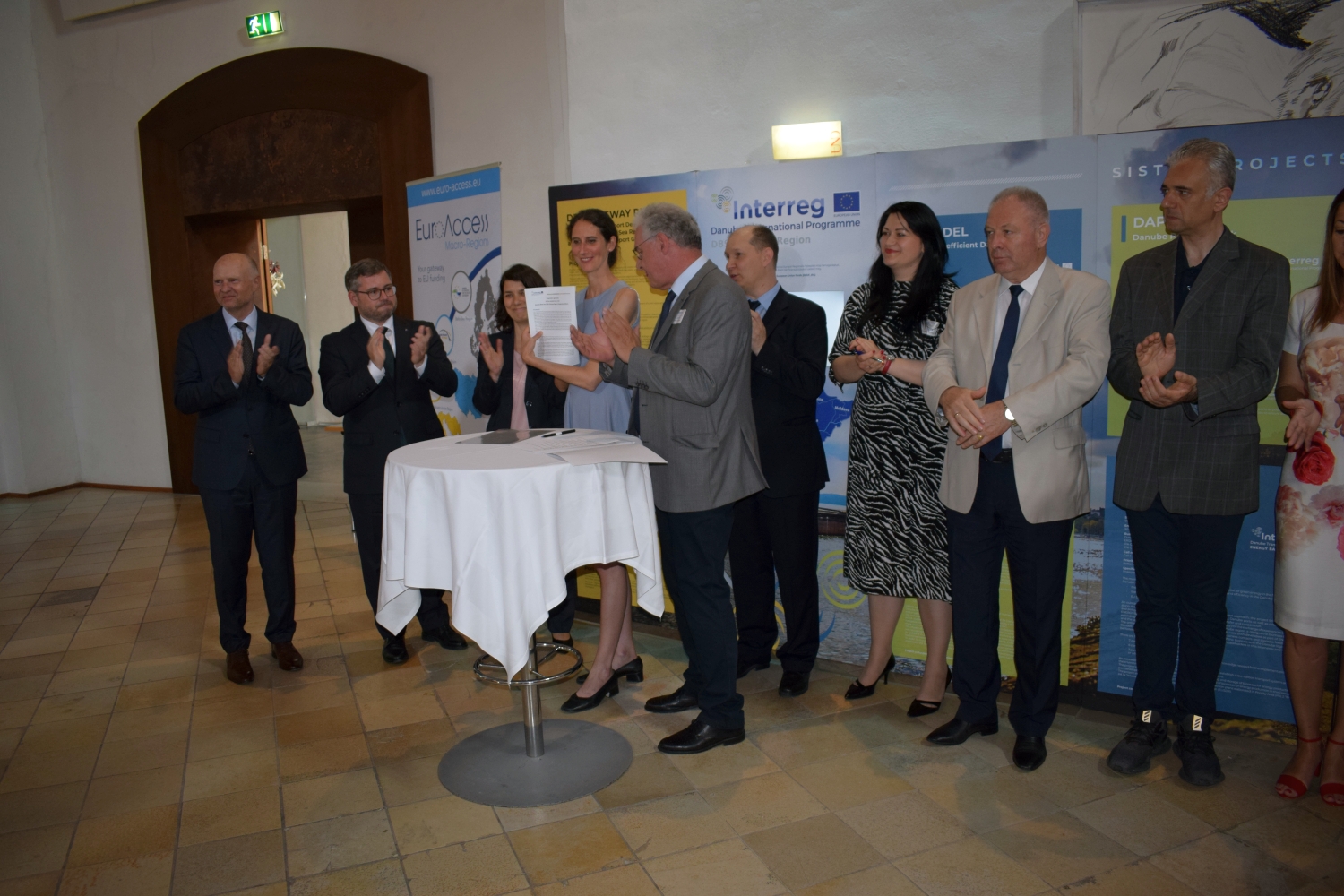|
Why do regions, cities and ports need to work together on freight transport for an efficient Danube transport system before other big players take the lead and what does this have to do with our environment and the quality of life?
On 13 June 2019 the Lower Austrian Provincial Councilor responsible for transport, Mr. Ludwig Schleritzko, signed an agreement for an enhanced cooperation within the Danube-Black Sea region at the DBS Gateway Region final conference in Krems.
Between 1985 and 2007, the volume of world trade grew about twice as fast as global GDP (source: The Economist, 28 April - 4 May 2018). The Danube Black Sea region also established closer economic relations with new markets in the Caspian region and the Far East. Thus, rising trading volumes led to an increase in freight volumes, which mostly are not transported by environmentally friendly modes of transport such as inland waterways or railways.
Major global players have already discovered the potential. They set up their own freight centers in order to establish themselves worldwide as sea freight forwarders. According to The Economist, "the idea is not to own all ships and vehicles (...), but to control the platforms that provide services and bring the rest of the industry on board through their monopoly". If we do not want to become dependent on the interests of others, the Danube-Black Sea region and thus all relevant actors must prepare adequately for the new challenge and take the lead themselves!
At the same time, the transport sector accounts for almost a third of all greenhouse gas emissions in the EU28 (27%, European Environment Agency), of which over 70% are produced on our roads (72%, Eurostat 2018). On average in the EU28, total greenhouse gas emissions from transport rose by more than 26% between 1990 and 2016, instead of falling - in Austria even by 73.7%! This costs the 28 Member States of the European Union around EUR 987 billion (6.6% of EU GDP) of the annual external costs. By far the highest external costs are caused by motorized road freight transport, which accounts for six times the share of inland waterway freight transport.
The regions suffer from the negative effects of transport (sealing, noise, congestion, air pollution and thus a reduction in quality of life) - but they are not victims. Together they can shape their future. For this reason, ARGE Donauländer (Working Community of the Danube Regions) already initiated the signing of a Memorandum of Understanding in 2013, which is supported by the entire Black Sea region and represents a first step towards cooperation.
On 13 June 20191, the partners of the DBS Gateway Region project met at the final conference in Kloster Und in Krems to present the results and to jointly seal the establishment of the resulting cooperation platform.

This cooperation platform will be hosted by the Working Community of the Danube regions and will be active in four main fields:
- Using the strength of a common voice to accelerate necessary changes and implement relevant actions (set out in a jointly developed roadmap and related regional action plans).
- Positioning the "DBS Gateway Region" as a recognized brand and make its opportunities visible on the international market.
- Supporting the relevant actors in ports, cities and regions in providing common services, extending port functionalities and ensuring multimodal accessibility of the hinterland in order to extend the catchment area of the ports.
- Cooperating with other initiatives within and outside the region
 
Councilor Schleritzko held the closing statement and led the ceremonial signing of the cooperation agreement. Afterwards, the participants of the conference met with the participants of the Europaforum Wachau in the newly opened Landesgalerie Krems and exchange ideas.
"In a global world, we must establish closer ties between our regions in order to pursue our goals consistently. This means a more efficient and longer-term cooperation strategy, which also contributes to asserting oneself more strongly against big players", says Christian Popp, representative of the Lower Austrian provincial govern- ment, main partner of the project; "For the benefit of the population and the economy of our regions! “
Details on the conference and the project, such as presentations, photos, videos and final reports can be found at the project website: http://dtp.interreg-danube.eu/dbs-gateway-region
|
